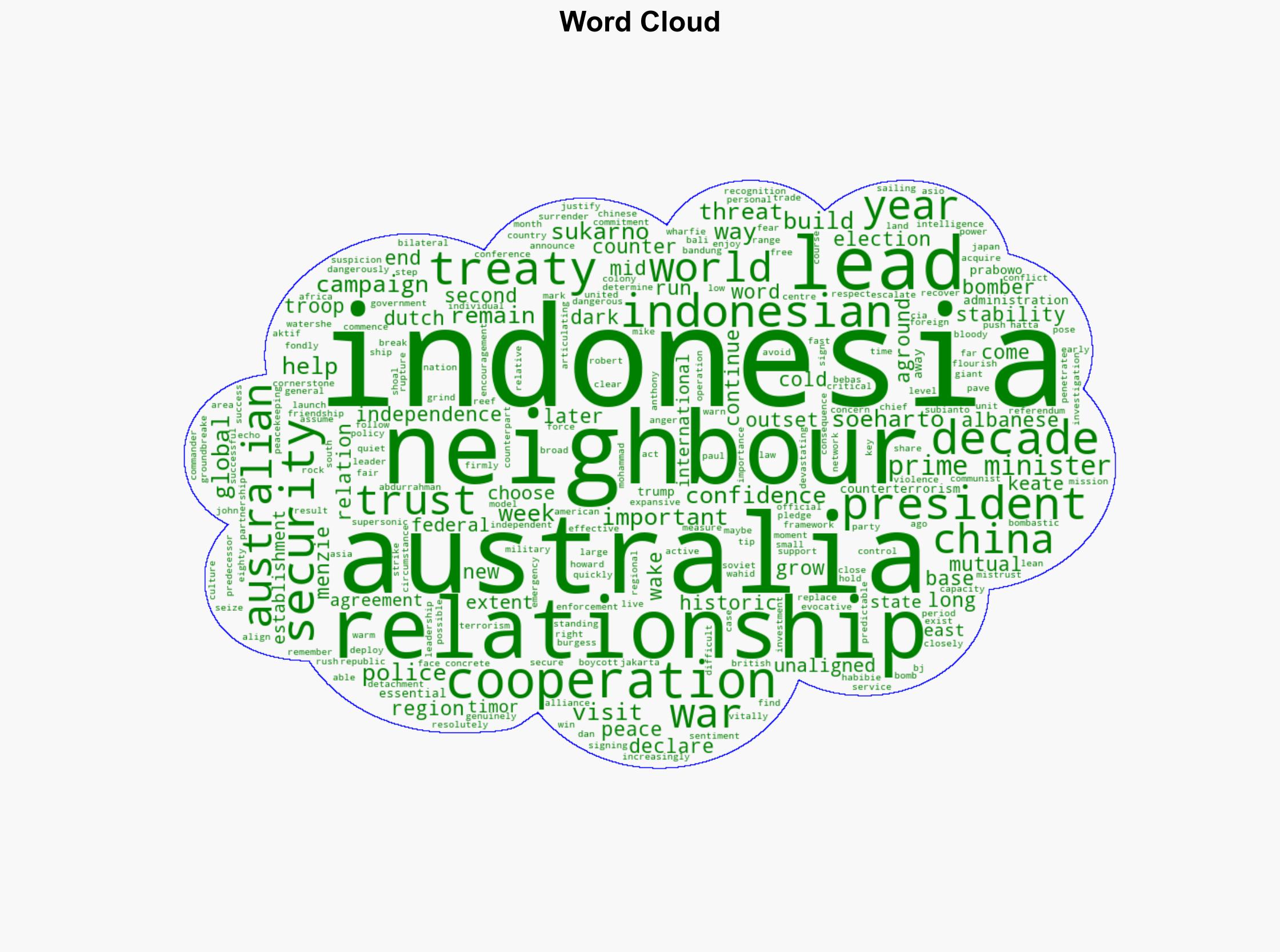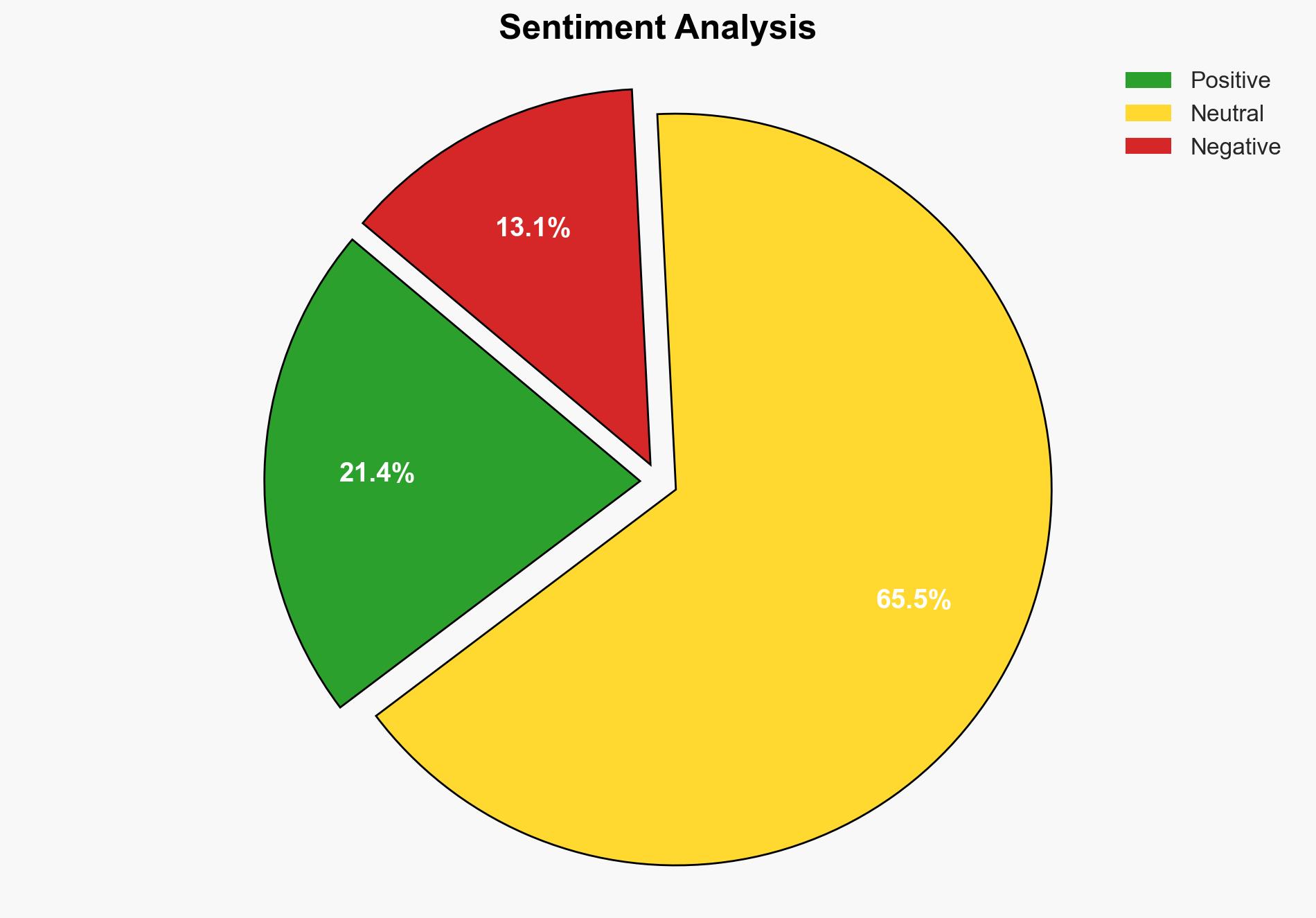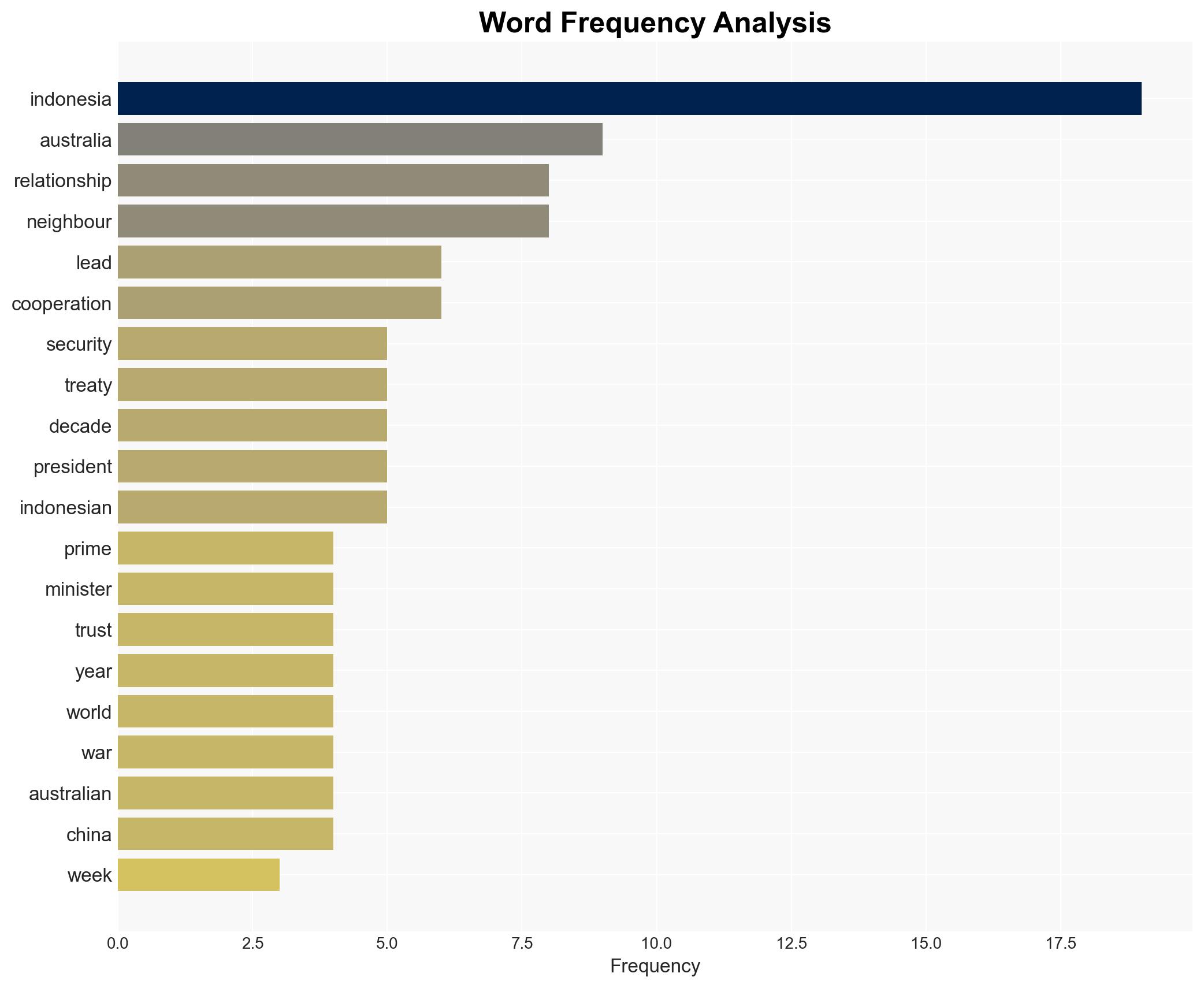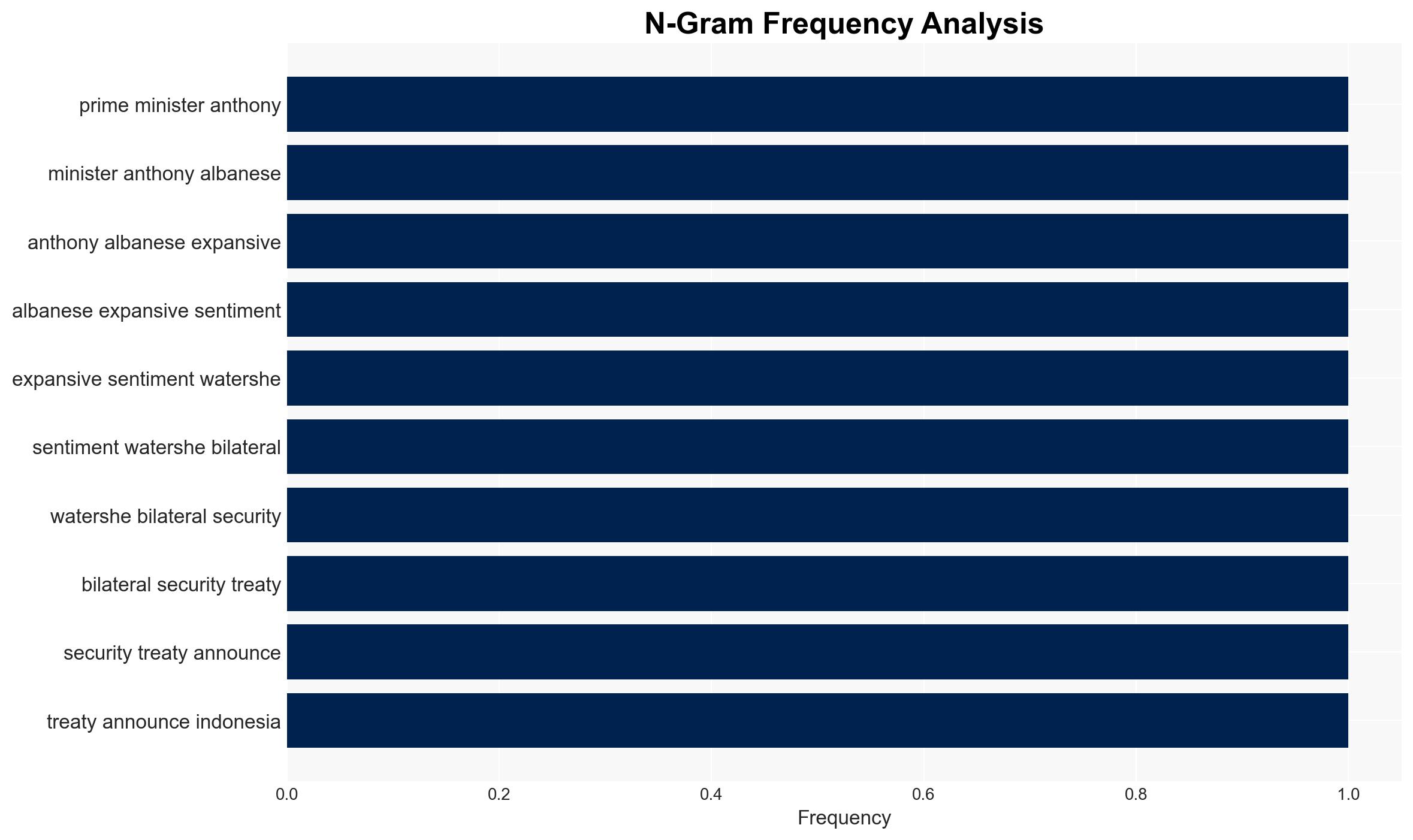Good neighbours are essential the history behind the landmark Indonesia-Australia defence treaty – The Conversation Africa
Published on: 2025-11-13
AI-powered OSINT brief from verified open sources. Automated NLP signal extraction with human verification. See our Methodology and Why WorldWideWatchers.
Intelligence Report: Good neighbours are essential the history behind the landmark Indonesia-Australia defence treaty – The Conversation Africa
1. BLUF (Bottom Line Up Front)
The strategic judgment is that the renewed Indonesia-Australia defense treaty is a significant step towards reinforcing regional stability and security, with a moderate confidence level. The most supported hypothesis is that both nations are motivated by mutual benefits in security cooperation, driven by historical lessons and current geopolitical dynamics. Recommended actions include enhancing diplomatic engagements and joint military exercises to solidify trust and operational readiness.
2. Competing Hypotheses
Hypothesis 1: The treaty is primarily driven by mutual security concerns and the desire to counterbalance regional threats, such as China’s increasing influence in the Indo-Pacific.
Hypothesis 2: The treaty is largely symbolic, aimed at repairing historical tensions and projecting a united front for domestic and international audiences, with limited immediate strategic impact.
The first hypothesis is more likely due to historical precedents of cooperation in counterterrorism and regional stability, as well as current geopolitical pressures. The second hypothesis, while plausible, lacks substantive evidence of purely symbolic intent given the operational history and strategic interests involved.
3. Key Assumptions and Red Flags
Key assumptions include the belief that both nations are genuinely committed to long-term cooperation and that external threats are a significant motivator. A red flag is the potential for domestic political changes in either country to alter the treaty’s trajectory. Deception indicators could include public statements that overly emphasize unity without concrete follow-up actions.
4. Implications and Strategic Risks
Potential implications include enhanced regional security and deterrence capabilities. However, strategic risks involve the possibility of escalating tensions with China, which may perceive the treaty as a countermeasure against its regional ambitions. Economic and cyber retaliations could be potential escalation scenarios.
5. Recommendations and Outlook
- Enhance bilateral military exercises and intelligence sharing to build operational trust and readiness.
- Engage in multilateral forums to promote the treaty as a stabilizing force in the region.
- Best-case scenario: Strengthened regional security and economic ties with minimal backlash.
- Worst-case scenario: Heightened tensions with China leading to economic or cyber confrontations.
- Most-likely scenario: Gradual enhancement of bilateral relations with cautious regional acceptance.
6. Key Individuals and Entities
Anthony Albanese, Prime Minister of Australia; Indonesian leadership; Australian and Indonesian defense and foreign ministries.
7. Thematic Tags
National Security Threats
Structured Analytic Techniques Applied
- Cognitive Bias Stress Test: Expose and correct potential biases in assessments through red-teaming and structured challenge.
- Bayesian Scenario Modeling: Use probabilistic forecasting for conflict trajectories or escalation likelihood.
- Network Influence Mapping: Map influence relationships to assess actor impact.
Explore more:
National Security Threats Briefs ·
Daily Summary ·
Methodology





